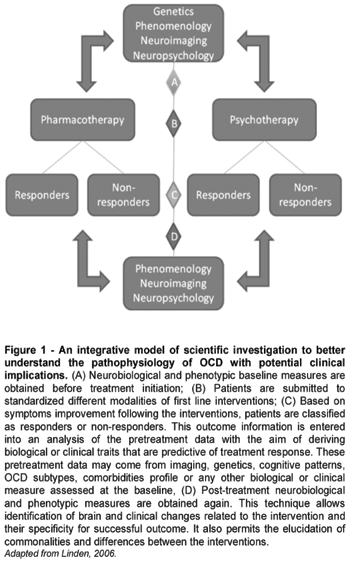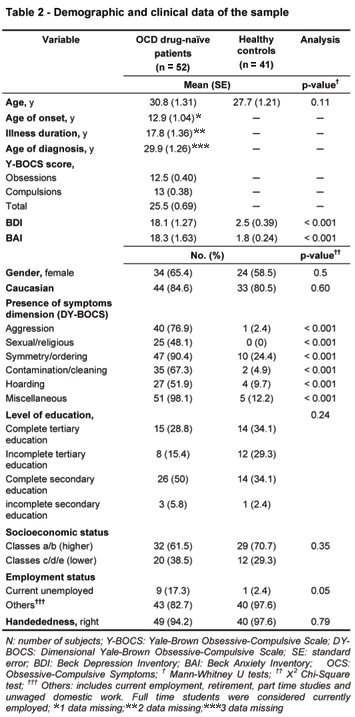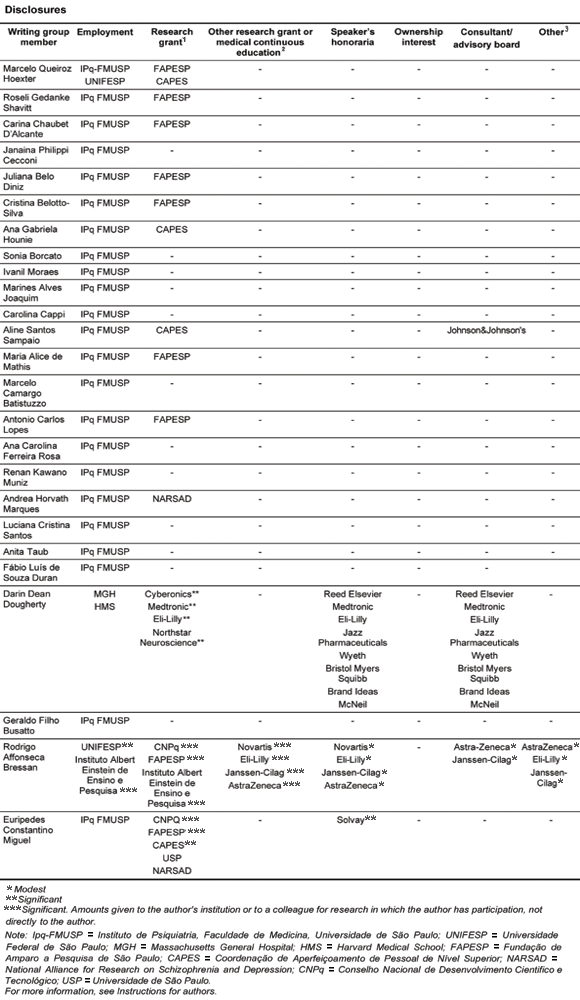OBJECTIVE: To describe a protocol that was based on an integrative neurobiological model of scientific investigation to better understand the pathophysiology of obsessive-compulsive disorder and to present the clinical and demographic characteristics of the sample. METHOD: A standardized research protocol that combines different methods of investigation (genetics, neuropsychology, morphometric magnetic resonance imaging and molecular neuroimaging of the dopamine transporter) obtained before and after treatment of drug-naïve adult obsessive-compulsive disorder patients submitted to a sequentially allocated 12-week clinical trial with a selective serotonin reuptake inhibitor (fluoxetine) and group cognitive-behavioral therapy. RESULTS: Fifty-two treatment-naïve obsessive-compulsive disorder patients entered the clinical trial (27 received fluoxetine and 25 received group cognitive-behavioral therapy). At baseline, 47 blood samples for genetic studies, 50 neuropsychological evaluations, 50 morphometrical magnetic resonance images and 48 TRODAT-1 single-photon emission computed tomography (SPECT) exams were obtained. After 12 weeks, 38 patients completed the protocol (fluoxetine = 20 and GCBT = 18). Thirty-eight neuropsychological evaluations, 31 morphometrical magnetic resonance images and 34 TRODAT-1 SPECT exams were obtained post-treatment. Forty-one healthy controls matched for age, gender, socioeconomic status, level of education and laterality were submitted to the same research procedures at baseline. CONCLUSION: The comprehensive treatment response protocol applied in this project allowing integration on genetic, neuropsychological, morphometrical and molecular imaging of the dopamine transporter data in drug-naïve patients has the potential to generate important original information on the neurobiology of obsessive-compulsive disorder, and at the same time be clinically meaningful.
Obsessive-compulsive disorder; Genetics; Cognition; Imaging; Treatment outcome







